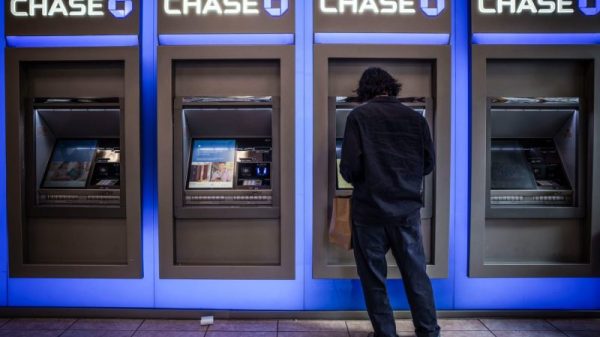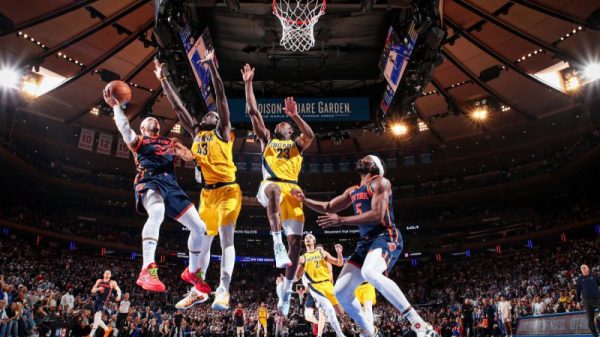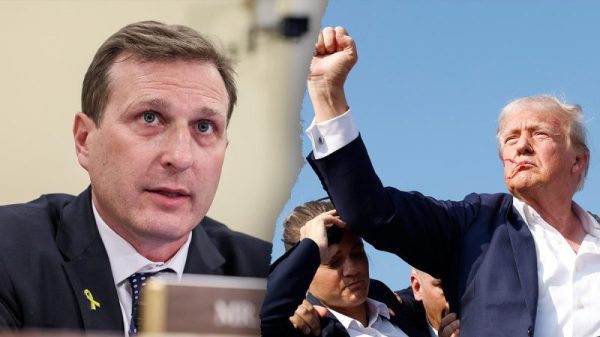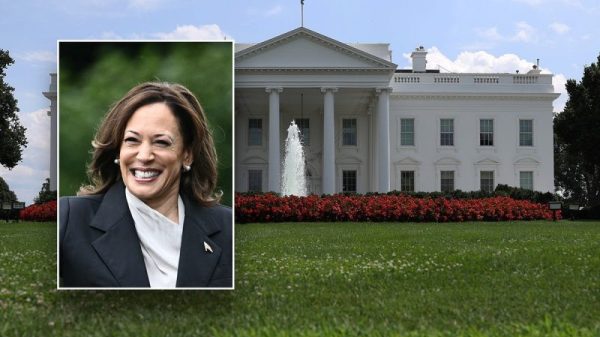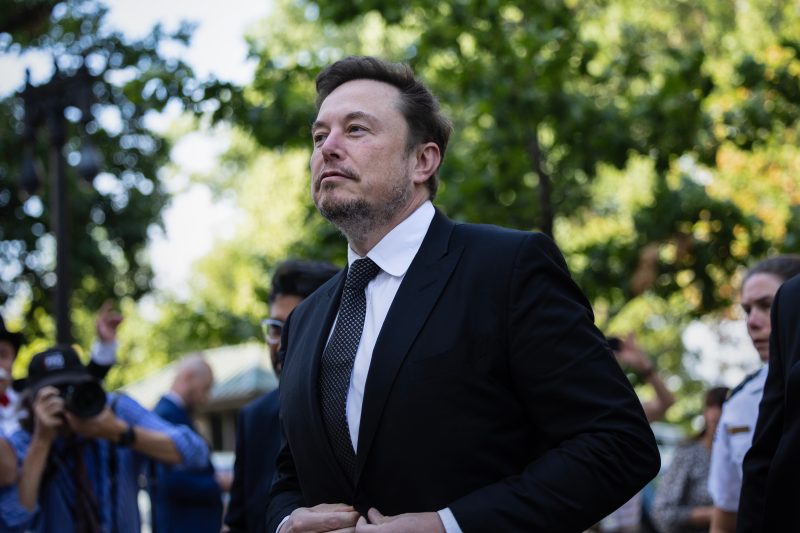SAN FRANCISCO — Israeli Prime Minister Benjamin Netanyahu is expected to fly to the heart of Silicon Valley on Monday to meet with X owner Elon Musk in an effort to help ease an escalating crisis over antisemitism on the struggling social media platform.
The meeting is the latest step in a campaign by Musk’s Jewish friends and allies, and executives of his social media company, to stave off the mounting controversy, according to five people familiar with the situation, who spoke on the condition of anonymity to share behind-the-scenes conversations.
This summer, Netanyahu smoothed things over in a conversation with Musk after the X owner repeated antisemitic tropes about Jewish financier George Soros. Netanyahu’s government minister tasked with fighting antisemitism made of point of saying that Musk’s comments were not antisemitic, despite widespread outcry in Israel.
The latest crisis — one of many in the drama-filled 11 months since Musk bought the company then known as Twitter — was sparked by a Sept. 4 tweet in which Musk accused a prominent Jewish organization of “trying to kill” the platform with false accusations of antisemitism. Since then, Musk has issued more than a dozen tweets critical of the Anti-Defamation League, saying the 110-year-old human rights organization was largely responsible for a 60 percent drop in advertising revenue and that he was planning to sue the group.
As the crisis has ballooned, Jewish business leaders including Joe Lonsdale, who co-founded the tech company Palantir and is a friend of Musk, have stepped in to broker peace, while X CEO Linda Yaccarino has gone into damage control mode.
Though Musk’s tweet caught Yaccarino and other executives off guard, leaders at X had been considering suing the ADL over what they believed were misrepresentations of the level of hate speech on the platform.
Yaccarino has since sprung into action: writing a blog post and exchanging text messages with ADL CEO Jonathan Greenblatt, with whom she met over videoconference a few days before Musk’s Sept. 4 tweet. The moment may prove to be an early test of the relationship between the erratic billionaire and his handpicked CEO, who was hired to placate advertisers and now finds herself cleaning up some of the damage done by her boss.
“X opposes antisemitism in all its forms,” Yaccarino tweeted on Sept. 8. “Antisemitism is evil and X will always work to fight it on our platform.”
Musk did not respond to a request for comment for this story, and X referred further questions to Yaccarino’s public statements.
The Netanyahu meeting, which is being hastily planned for this coming Monday and is expected to include other tech leaders, adds an international dimension to the controversy, said one of the people familiar with the meeting. The Israeli prime minister, who is facing a domestic crisis over his efforts to revamp Israel’s judicial system, has positioned his relationship with Silicon Valley leaders like Musk as important for the future of the “start-up nation” of Israel.
Advertising experts told The Washington Post that the allegation that ADL is responsible for X’s falling revenue was laughable. They said that, for months, major advertisers have stopped spending on the service. The drop in demand resulted in far lower ad prices for the advertisers that remained. A free ad credit program X created to lure brands back appears to have run out, they added.
“It’s clear Twitter’s drop-off in ad revenue started months ago as a result of changes the platform made to ad formats,” said Sara Livingston, a marketing analytics consultant. “It has nothing to do with the ADL.”
Another advertising executive, who spoke on the condition of anonymity to describe industry conversations, said there’s been a 75 percent drop-off in the number of people who click on ads since Musk’s acquisition of the company. The person said that the ADL had not been pressuring advertisers to stop spending on the platform lately.
A new biography of Musk by author Walter Isaacson details his rage at calls for an advertiser boycott in his first weeks of ownership, after the ADL and other advocacy groups reported a surge in hate speech on the platform. But it also makes clear that many of the company’s problems with advertisers stemmed directly from Musk’s own actions, such as when he amplified a wild conspiracy theory on Oct. 30 about Paul Pelosi, the husband of Rep. Nancy Pelosi (D-Calif.), then the House speaker.
In a subsequent meeting intended to reassure advertisers, Isaacson reports, Musk inadvertently alienated them further by saying they should expect him to tweet stupid things sometimes. Perhaps the biggest blow to Twitter’s relationship with advertisers came when the company’s new paid verification system allowed a bevy of trolls to impersonate major brands such as Eli Lilly and Coca-Cola and send offensive tweets in their name.
In the roughly 100 days since Musk hired her, Yaccarino has worked to bring advertisers back into the fold. She’s held meetings with high-profile ad executives. She’s spearheaded efforts to create new tools that block their ads from popping up alongside problematic keywords, and she contracted a third-party firm to make sure those tools worked. The features went live last month.
She also met with prominent civil and human rights groups that have criticized the platform for a spike in hate speech since Musk took over. In March, an analysis by British think tanks Institute for Strategic Dialogue and CASM Technology found antisemitic posts had “more than doubled” after the acquisition.
On Aug. 30, Yaccarino had a virtual meeting with Greenblatt. The Jewish human rights group had previously been one of the organizations leading a call for advertisers to boycott the platform in response to rising numbers of hateful posts.
Both sides viewed the meeting as cordial and productive, according to the people briefed on the meeting, with Greenblatt and Yaccarino praising the dialogue in separate tweets.
But news of the discussion quickly brought out far-right personalities on the platform. Charlie Kirk, who runs the right-wing nonprofit Turning Point USA, along with extremists such as white supremacist Nick Fuentes, began boosting a hashtag, #BanTheADL. Fuentes even called on his followers to make it trend.
Musk himself began liking posts containing the hashtag. Two days later, he replied to an anti-ADL tweet from Keith Woods, an antisemitic YouTube personality who was a speaker at a white supremacist conference the previous month.
Soon, #BanTheADL became one of the top trending topics on X.
Then, on Sept. 4, Musk tweeted that the ADL has been trying to kill the platform by falsely accusing “it & me of being anti-Semitic.” He said he had “no choice” but to sue the organization.
In an interview, Greenblatt said that his organization was accustomed to being on the receiving end of hateful attacks. But Musk’s actions took the vitriol to another level.
“We’ve gotten bomb threats. Our offices have been swatted. None of that is new,” he said. “But this was an onslaught. There was something different about this tsunami of hate.”
He said his organization had not actively promoted the advertiser boycott in recent months.
Amid the crisis, wealthy Jewish leaders tried to help defuse the situation, according to two people familiar with the matter who spoke on the condition of anonymity to describe private conversations. Lonsdale and Steve Rattner, an investor who manages former New York mayor Mike Bloomberg’s assets, both reached out to ADL.
“He doesn’t hate Jews, but he’s a fighter and when you punch him, he is going to punch back,” said one of the people familiar with the outreach. “Part of who he is is an aggressive force of nature. He doesn’t understand the second-order effects.”
What Greenblatt didn’t know during his meeting with Yaccarino was that, behind the scenes, she and other executives had been working with Musk to plan for a potential lawsuit against his organization. The proposed lawsuit, which has not been filed, would dispute the methodologies used by the ADL and other advocacy groups as evidence that inaccurate, hateful and violent posts have surged on X, according to one of the people familiar with the plans. It would make allegations similar to those in a lawsuit the company filed last month against another advocacy group, the Center for Countering Digital Hate. The nonprofit’s CEO, Imran Ahmed, said he also met privately with Yaccarino, just weeks before Musk sued the group over its research into hate speech on the platform.
While X executives blame the ADL in particular for the advertising boycott, numerous civil rights and advocacy groups had been part of the campaign, including GLAAD, Media Matters for America, Free Press, Accountable Tech and Color of Change. They used the hashtag #StopToxicTwitter.
The burgeoning controversy is not the first in Musk’s relationship with the ADL. In November, shortly after he closed his purchase of Twitter, Musk met via Zoom with Greenblatt and representatives of several other human rights organizations, including the NAACP, Free Press, and The Asian American Foundation. He pledged then that Twitter would continue to discourage hate speech on the site. But he faced fierce backlash among many on the right, who had supported his takeover of the site and favored his pledge to promote free speech.
Shortly after, more than 60 organizations signed a letter to Twitter’s top advertisers asking them to cease spending on the social media site.
It was unclear Thursday what might come of the Musk-Netanyahu meeting. People familiar with the event said it was still coming together. Offir Gutelzon, an Israeli tech entrepreneur in Silicon Valley who has led efforts by Israeli expatriates to protest Netanyahu’s judicial overhaul, said he planned to organize a rally in the vicinity of the Musk meeting.
“It’s deeply disturbing that Benjamin Netanyahu, leader of the world’s only Jewish state, is flying across America to seek the counsel and support from a notorious enabler of anti-Jewish hate speech,” he said.
Cristiano Lima and Drew Harwell contributed to this report.







